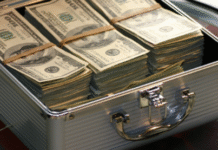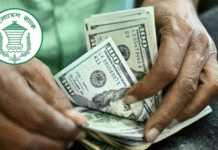
While the international oil market saw its worst day on Monday as US crude oil price dropped below zero, Bangladesh began preparing to hoard 1.1 lakh tonnes of oil to take advantage of the situation.
This extra oil is good enough for 10 days of consumption by the nation in a normal situation.
Oil prices have been falling throughout April – which triggered many nations, including the US, China and India, to buy large amounts of crude oil to replenish the Strategic Petroleum Reserve and take advantage of low oil prices, according to Bloomberg.
Bangladesh too wanted to buy extra to take advantage of the cheap price. But the state-run Bangladesh Petroleum Corporation (BPC) has several problems to overcome, chief among which are bureaucratic tangles and the lack of a big storage system.
As the government high-ups gave the go-ahead, the BPC went out to look for storage.
The government’s storage system allows saving 13 lakh tonnes of oil. Due to the sharp drop in domestic consumption and continuous import, this storage is currently full.
So, the BPC looked at private storage facilities. The country’s lone importer of all petroleum products, except high-sulphur fuel oil, sent letters to eight major private companies seeking their opinions and required information in this regard on April 12.
In response, just one company came up with a solution.
“We are going to hoard 80,000 tonnes of additional diesel at the United Tank Terminal in Chattogram. We could store more fuel if we had the capacity,” said Md Shamsur Rahman, chairman of the BPC.
Besides, we are planning to use the lighterage ships which have more than 6,000 tonnes of carrying capacity to store fuel, he added.
The BPC formed a five-member committee on Tuesday to check out the United Group’s storage facility.
Meanwhile, it is also aiming to use the petrol pumps’ storage to hoard extra oil even though the sale of oil has dropped by 70 percent.
There are 2,800 petrol pumps across the country and 118 lighterage ships, but their capacities could not be determined.
However, the BPC is not yet clear about how much oil can be stored with all these facilities.
Oil prices in the international market have fallen drastically in the wake of the coronavirus outbreak and a price war between Saudi Arabia and Russia. Marketwise price of crude oil has fallen by 60 to 100 percent to below $20 per barrel.
However, US crude oil faces the worst fall since 1983 as the price fell below zero dollar per barrel.
Last month, the BPC imported per barrel of crude oil at $56. On April 9, the corporation imported each barrel of diesel at $38.5, a sharp fall from the import price of $45 a month ago.
Earlier, the corporation had to spend $70-73 to import one barrel of diesel.
According to Livemint, India planned to take advantage of the low oil prices to top up its Strategic Petroleum Reserve. Livemint quoted its source as saying that the Indian oil ministry was seeking a fund of $673 million to purchase extra oil.
But for Bangladesh, such initiatives are quite difficult to implement as the state-owned BPC does not have a sizeable oil storage facility in which it can keep the extra oil.
Bangladesh can store 13 lakh (1.3 million) tonnes of fuel in different depots across the country. This is equivalent to 45-50 days’ demand. The government reservoirs have almost reached their saturation capacity by now.
In this situation, if the government continues to import oil, there will be no place to store it.
The country’s daily demand for fuel is 18,000 tonnes. Diesel tops the demand.
In the pre-shutdown period, from March 9 to March 25, the daily profit of the BPC was around Tk24 crore ($2.85 million).
BPC’s profits, however, slipped to around Tk8 crore per day after March 26, as the consumption of all types of petroleum products declined by around one-third to around 6,000 tonnes a day amid the countrywide transport shutdown.
Meanwhile, consumers are not getting the benefit of the historic oil price fall as oil prices in the country have not been revised in the last four years.
The government last fixed fuel prices in 2016 when per barrel prices of crude oil and diesel oil in the international market were $43.13 and $50.31 respectively.









